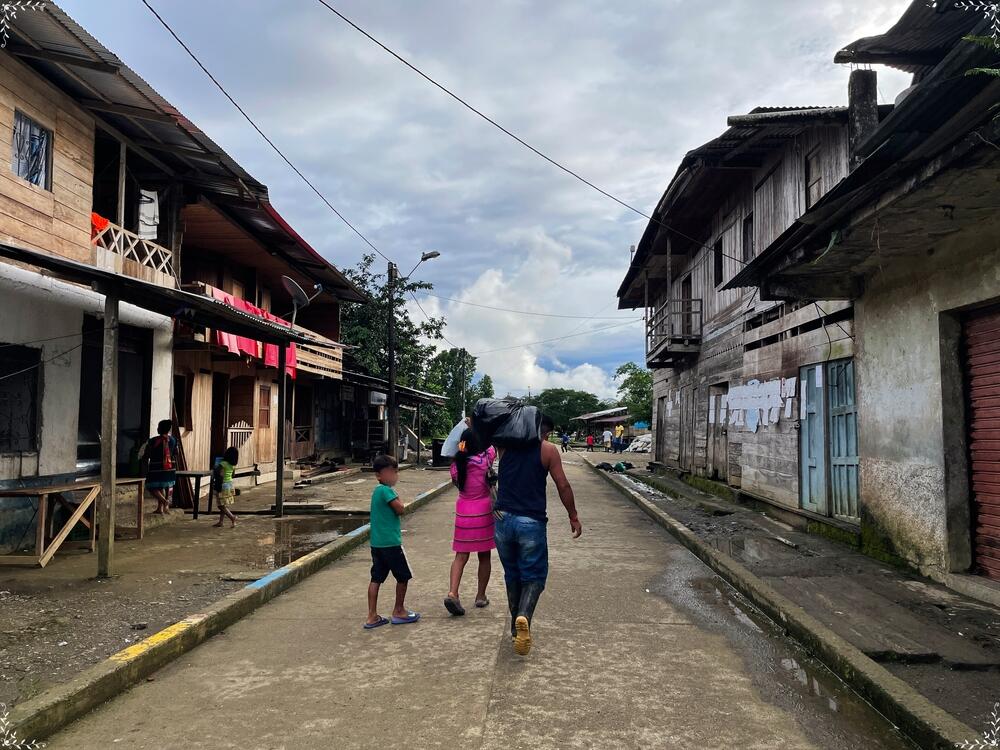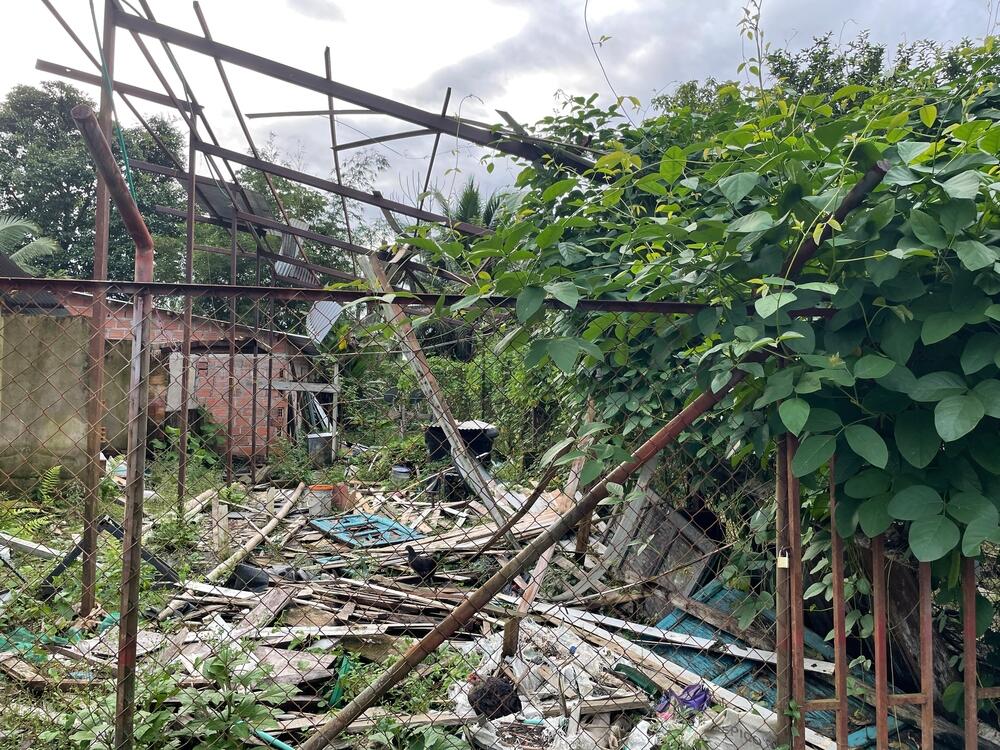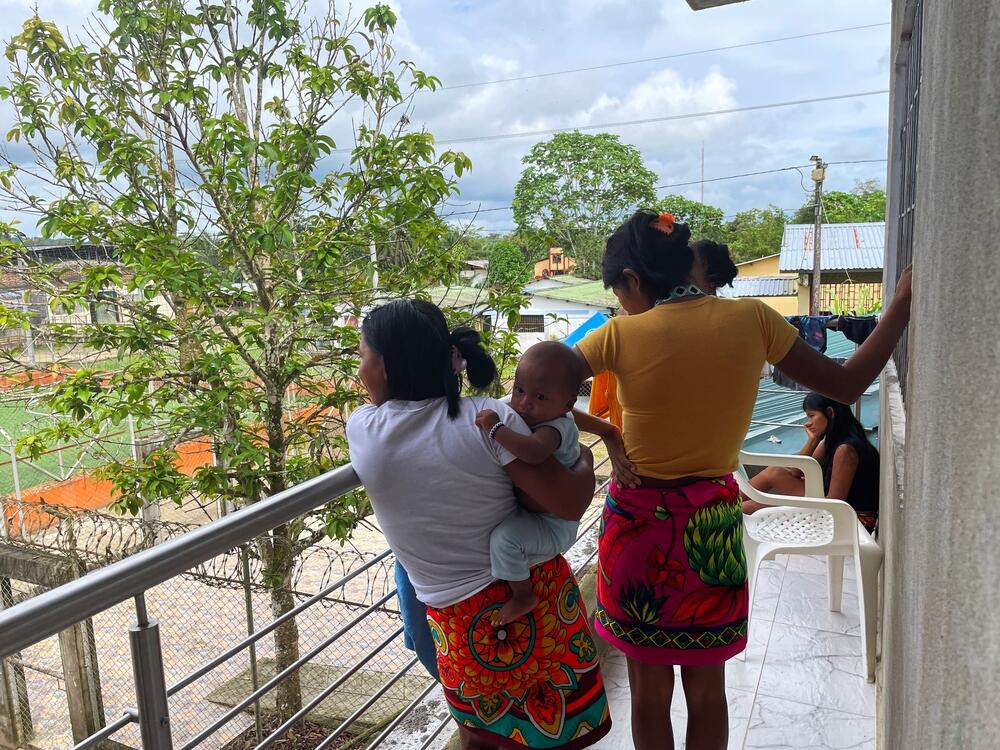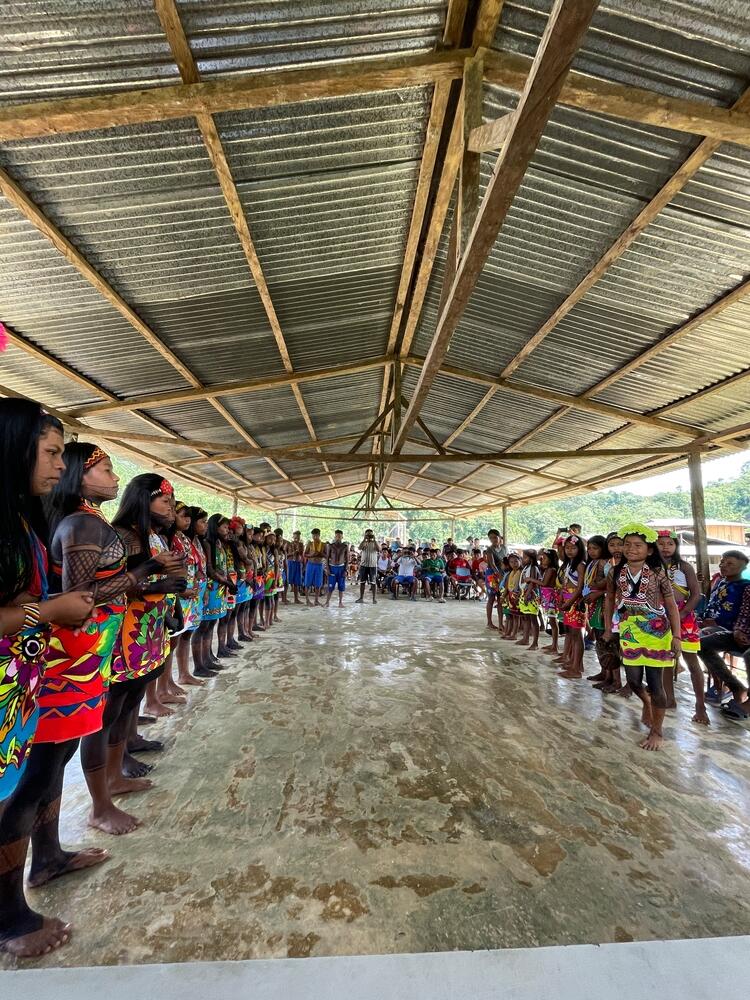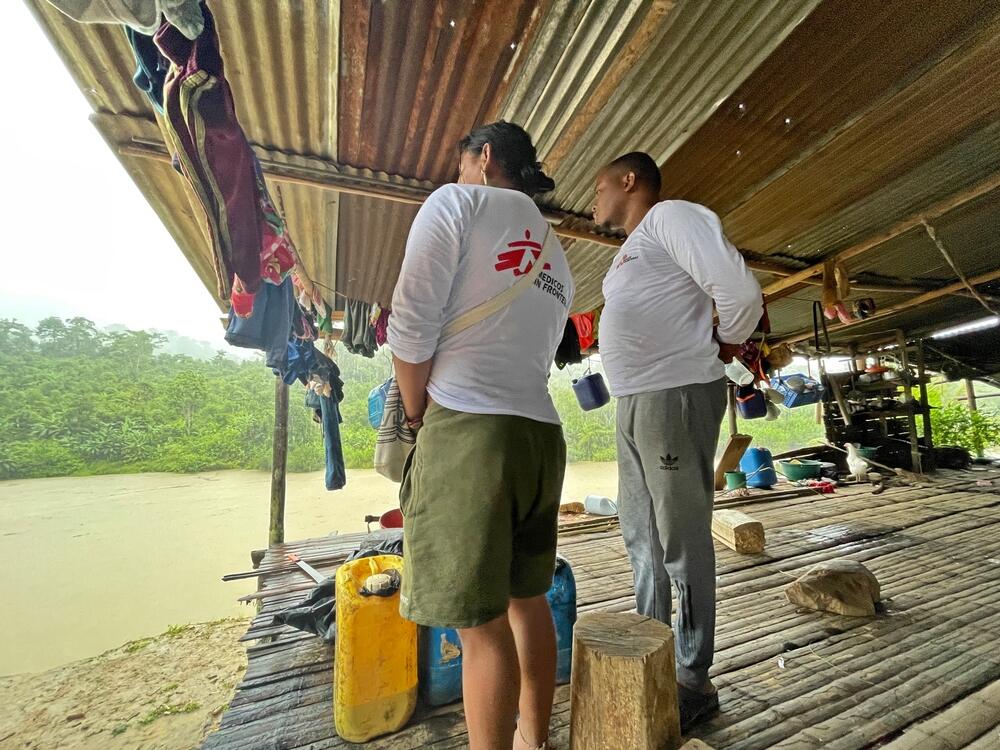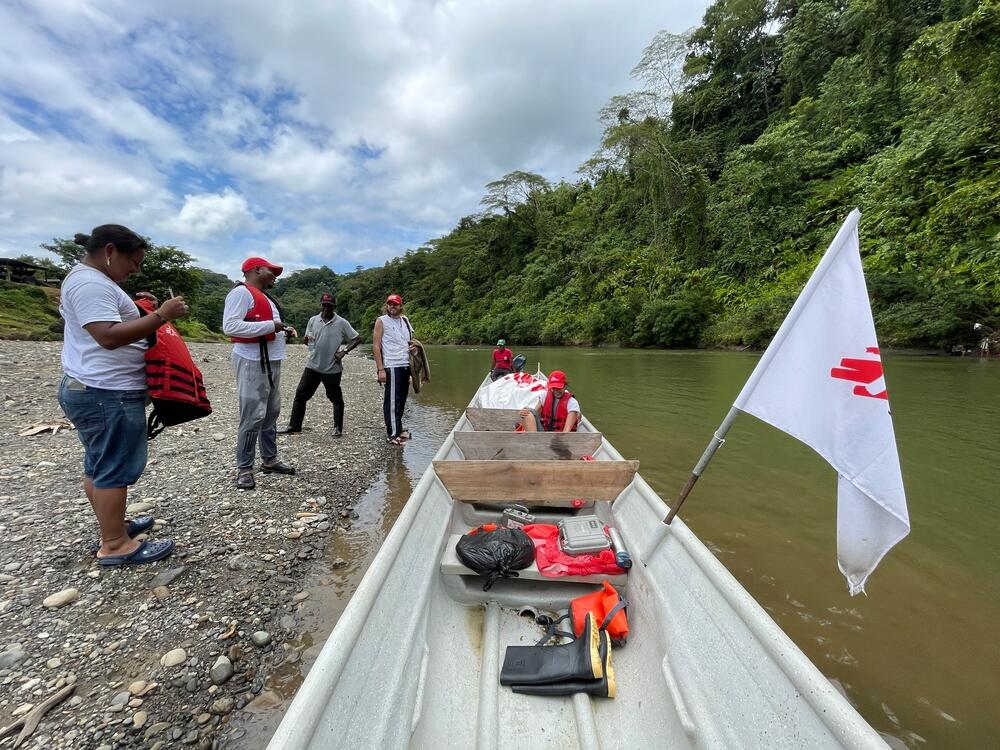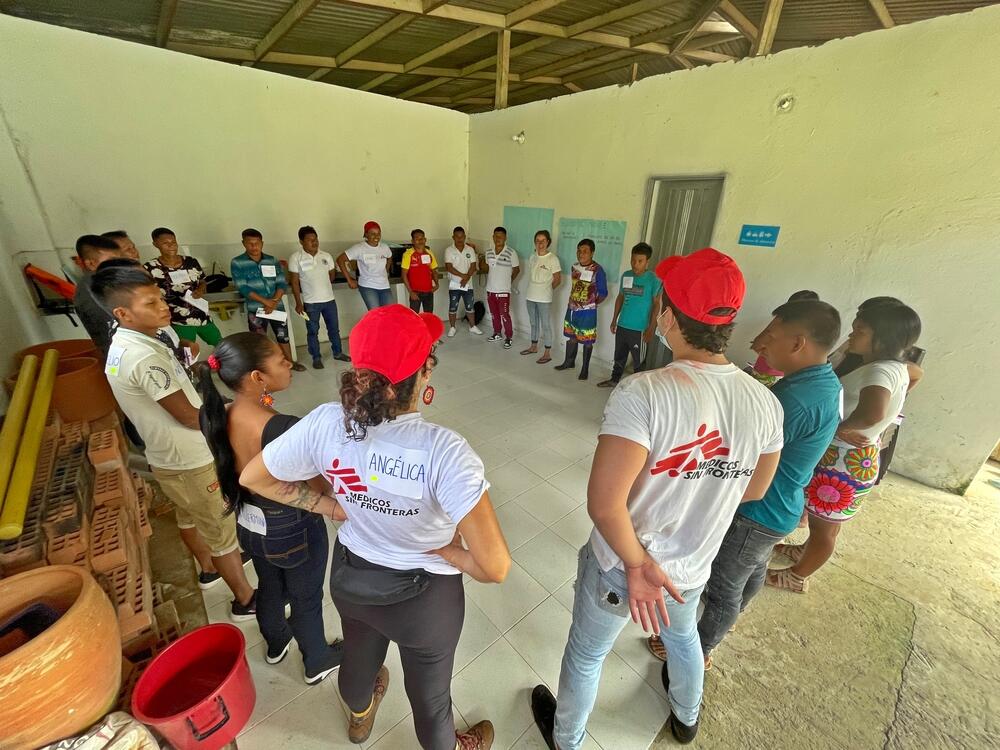Confinements in Alto Baudó, life in rural communities is deteriorating
12 December 2022
Médecins Sans Frontières (MSF) is launching an appeal to safeguard the health of the rural populations in the Chocó area.
In a rural community of Alto Baudó, in Colombia’s Chocó department, a farmer wanders from house to house asking for food and help. Six months ago, an armed group took over his farm and installed internet and computer equipment. He feared that another armed group would think he was affiliated with them, so he packed some clothes and left town. Several weeks later, he returned home to find that his house and the equipment had been destroyed during clashes between armed groups in the area.
This year has been difficult for rural communities in Chocó. According to the United Nations Office for the Coordination of Humanitarian Affairs (OCHA), 131,765 people from 12 municipalities in the Department are facing difficulties accessing food, education, and health and moving around freely. Clashes between armed groups, as well as landmines, has made it increasingly difficult for the Afro-Colombian and indigenous communities to move around safely and freely.
Médecins Sans Frontières (MSF) met the farmer whose home was destroyed during a visit to the rural areas of Alto Baudó. Our teams met many people from the indigenous and Afro-Colombian communities who said they had found it difficult to move around.
Since March 2022, MSF has been running an emergency and community health care project in this region. People in this area having trouble accessing medical care for several reasons, including the security situation, a lack of health care facilities, and not being able to afford the transport to access the few facilities that to exist.
"We want to live like we did before": Indigenous Leader
People from the Emberá indigenous community and the and Afro-Colombian community councils come to Pie de Pató, the municipal capital of Alto Baudó, to receive humanitarian assistance. Here, MSF treats patients are treated in collaboration with the municipal healthcare centre. Some people must travel between two and 12 hours by boat to reach Pie de Pató, where is the first point of health care in the area. As a result of the safety restrictions and the lack of financial resources, many people don't receive medical care.
Between May 20 and November 23 2022, MSF organized the transportation of 322 patients to Pie de Pató from areas in Alto Baudó where there is no access to health care. During this same period, 10 children under the age of 5 reportedly died in rural areas from a range of causes, such as asphyxia, whooping cough, diarrea, dehydration, and vomiting. Two adults also reportedly died, one due to bleeding and the other due to seizures. Five people also suffered snakebites have also been detected.
The governor of an Emberá Katío community told us, that a nearby Emberá community is hosting displaced people from four other communities who fled violence in 2014. “There are 786 of us, but there is nowhere to build,” said the governor. “There are many people who do not have much to do, because most of them work as day labourers on farms, but there are not many because they stay in the jungle, where there are clashes."
To reach Pie de Pató, the governor had to travel for a day by boat. He says that Pie de Pató is the only place where you can communicate with the community or with humanitarian organisations to receive some type of assistance.
People are essentially confined to their communities, unable to leave due the violence between armed groups. Said the governer to MSF that this isolation has caused food supply problems as well as alcoholism, as many people are living with constant stress.
"The farms are abandoned,” said the governor. “All you can do is pick bananas and yuccas to eat, but that's not enough for us. If you don't come to Pie de Pató, you can't buy food. And to come here, we need at least 200 thousand pesos [about $42 US]. When people get sick with malaria or fever, nothing can be done about it."
MSF is currently paying for the boat fuel to transfer patients to Pie de Pató. Throughout 2022, the most common illnesses that MSF treated or referred for further medical care were related to dehydration, diarrhea, malaria, and malnutrition and undernutrition—as people are not able to eat enough protein.
Winter season and clashes
Armed conflict has not been the only problem that people in the rural areas of Alto Baudó have had to face in recent months. According to the indigenous authorities, the winter season has affected at least 750 families. "At this moment, my community is flooded," said a leader from a nearby indigenous community, four hours from Pie de Pató by boat. “We lost the yucca and banana crops. Many children have fever, flu, coughs, and vomiting because they drink a lot of water from the river."
Homes are becoming increasingly overcrowded. The leader told MSF that some homes sleep almost 40 people, because so many families have been displaced by the constant clashes. He agrees with other indigenous authorities who say that many families have been displaced since 2014 and have not been able to return to their farms. "There are no animals there anymore, or crops,” he said. "If someone goes hunting, they might step on a mine and die. As there's no food, we have to appeal for help or for our children to be transported."
In his community, there are traditional healers, known as “jaibaná”. But, ultimately, “there’s not much they can do and you end up having to call on the western doctors. There are diseases that the jaibaná cannot cure," he said.
The families of another community that is 11 hours away from Pie de Pató by boat are facing a similar situation. There, 659 inhabitants are essentially unable to travel due to movement restrictions imposed on them by armed groups. There is a constant fear of crossing invisible borders, of being identified by one armed group as the helper of another. It's best to stay silent and, as one inhabitant said, the entire community must be gathered together by six o'clock in the evening. If a patient becomes ill at night, they simply can't go out.
One inhabitant of this village recounted how three indigenous men recently went hunting and stepped on a landmine. Another young woman who went up the river without the permission of the armed groups was beaten by them. The dancing and ceremonies take place when the armed groups aren't there. "They don't let us live our lives,” said one community member. “The children have trouble going to school, you can't hunt, or go and pick the herbs that the jaibanás need. With the colonization of Colombia, the Emberá fled to the riverbanks. Now we're doing the same—but we don't find peace."
* MSF has worked in Colombia since 1985. Our teams are providing medical care and assistance in Nariño and Chocó departments through emergency and community health care programs.
